by Jenny Rose | Oct 22, 2022 | Emotional Intelligence, Fear, Feelings
I’ve been sick for the last week. Not COVID, just a heavy cold, likely acquired from one of my giggling, spluttering, young swim students.
To be sick is to be in an alternate reality. Life goes on outside my windows. The neighbors come and go. The mail comes. They’ve been paving streets in the neighborhood. It’s rained. I’ve watched leaves falling and wished I felt well enough to go out and rake them into my garden beds. I’ve missed being out in the world. I’ve missed work. I’ve missed my friends. I’ve missed swimming and exercising.
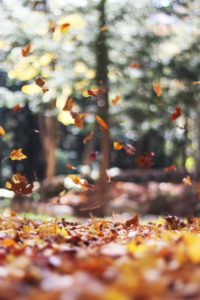
Photo by Autumn Mott on Unsplash
I’ve had a lot of time to read, and to think. I follow a writer on Substack, Jessica Dore. She writes about the Tarot, myth, and story, and I rarely read her without new insight and perspective on my own work in these subjects. In one of her recent posts, she explores an old story dealing with wounds, suggesting there may be wisdom in “letting the wound live.” Culturally, we are focused on healing, on fixing, on freeing ourselves and others from pain. Allowing wounds to stay open is a challenging and uncomfortable idea, but some part of me senses wisdom may indeed lie within it.
I’ve been thinking about letting wounds live as I surrender to whatever virus is operating in my system right now. Not thinking logically and linearly, but allowing it to float and drift through my mind, making tenuous connections with other things I’m reading, old memories, half-waking dreams as I cat nap on the couch.
Another idea I’ve come across lately is turning weaknesses into strengths. This is my favorite kind of alchemy. I’ve always considered my wounds to be weaknesses. Could they be strengths?
We moved in May, and I’m still figuring out how best to fit my furniture into my space. I bought myself a badly-needed new mattress and a high bedframe to hold it. High because I have no closet in my bedroom and I want to store clothes under my bed. Love the mattress, love the frame, but the bed is now so high (I feel like the princess and the pea on top of twenty mattresses!) my bedside table is ridiculously low and inadequate. I had to lean out of bed to use it.
I have a tall wicker basket with a hinged lid. When I was a child my brother and I used it as a laundry hamper. I’ve taken it with me from place to place all my life. It’s the perfect height for my bedside table, nice and roomy on top, storage inside.
I have an old wound connected with that basket.
When I was about nine years old we lived in a big house in the Colorado mountains in a very small town. My brother and I had a playroom, a bedroom each, and a bathroom downstairs in the finished basement. The wicker hamper lived in our bathroom next to the tub/shower.
I was a fearful child, terrified of the dark, constantly anxious, with a vivid (fervid?) imagination. One evening I went in the bathroom, shed my dirty clothes and put them in the hamper, and took a bath. All was well (what’s better than a hot bath and a book?) until the tub was filled and I turned the water off.
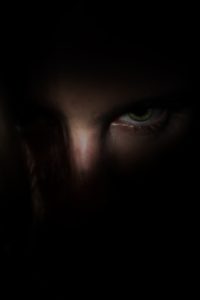
Photo by Peter Forster on Unsplash
The hamper creaked. Then it cracked. Then it skritched. Long silences in between noises. I had never noticed this before, and I was immediately terrified. All the unnamed, half-understood fears in my young heart coalesced into the utter certainty there was a monster in that hamper, and my life depended on escaping its notice.
I froze, my book clutched in my fingers. I didn’t dare read because I was afraid of the whisper of turning a page. I didn’t dare move. The door was closed. My parents were far, far away upstairs. I got cold, and then colder. Reaching for the hot water tap was out of the question. I’d have died first.
The hamper creaked, and cracked, and skritched.
Eventually, what seemed like hours later but was probably much less than that, although the water was unpleasantly cool by then, my mom came to check on me and found me there, fixed in place with a terror I could not adequately express. That was the problem. If I’d been able to talk about my fears they likely wouldn’t have been so overwhelming.
I’ve never forgotten that evening, and how real and visceral my terror was. I knew, I knew some dark and deadly horror crouched in that hamper, listening, scenting prey, slobbering, waiting to pounce. I knew there was no help for me. No one would hear. No one would protect me.
In spite of that old trauma, I’ve always loved the wicker hamper. It still creaks and cracks with temperature change and use, but it strikes me as friendly now, rather than sinister.
An old traumatic wound. It joined others wounds made by the claws of fear. I’ve written before about my fear of the dark, which haunted me for the first three decades of my life. Fear of uncertainty. Fear of disappointing others. Fear of scarcity. Fear of the adult world I could not possibly understand. Fear of abandonment.
Fear is an old and loyal companion.
How could it possibly be a strength? Surely nothing is quite so pathetically weak as constant fear?
As I was pondering this, I came across a poem by Rainer Maria Rilke, one of my favorite poets, translated by another of my favorite poets:
You Darkness
You darkness from which I come,
I love you more than all the fires
that fence out the world,
for the fire makes a circle
for everyone
so that no one sees you anymore.
But darkness holds it all:
the shape and the flame,
the animal and myself,
how it holds them,
all powers, all sight –
and it is possible: its great strength
is breaking into my body.
I have faith in the night.
Translated by David Whyte.
Rilke understood darkness. So does Whyte. Poets. Writers.
Writers like me.
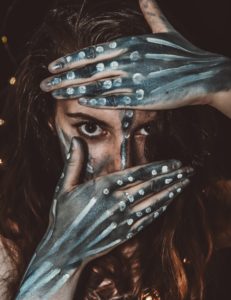
Photo by Joshua Fuller on Unsplash
So much of my writing is about shadows and darkness, the hidden thing, the unspoken secret, the uncertain future, the truths nobody dares tell … until someone does. Someone like Pandora, who opened the box anyway. Someone who blows the whistle, blows the cover. Someone like Baba Yaga, or the child who said aloud, “the emperor has no clothes!”
I am surely not the only child of fear. Perhaps we all hold its hand, or perhaps some of us are more intimate with it than others. I don’t know. What I can sense is its paradoxical nature. Fear defines courage. How often does it define, at least in part, art? Think of Vincent Van Gogh, for example.
Fear defines courage. Yes. I believe that. Courage is strength. I believe that, too.
Then it must follow that fear is not weakness. Fear has wounded me, but it hasn’t made me weak. Rather the reverse.
If things had been different in my life, if I’d never felt the degree of fear I did and do, if somehow I’d found a way to heal myself of fear’s wounds and be free of it, I would not be the writer I am. I might still be a writer, a different kind of writer, but I would not have written The Webbd Wheel series or this blog.
All my work and much of my empathy are rooted in the compost of living, breathing, bleeding fear and the wounds it’s torn in my psyche. Fecund wounds. What a strange idea.
I leave you this week with a final thought from David Whyte:
… the place you would fall becomes
in falling
the place you are held.
From “Millennium”
To read my fiction, serially published free every week, go here: 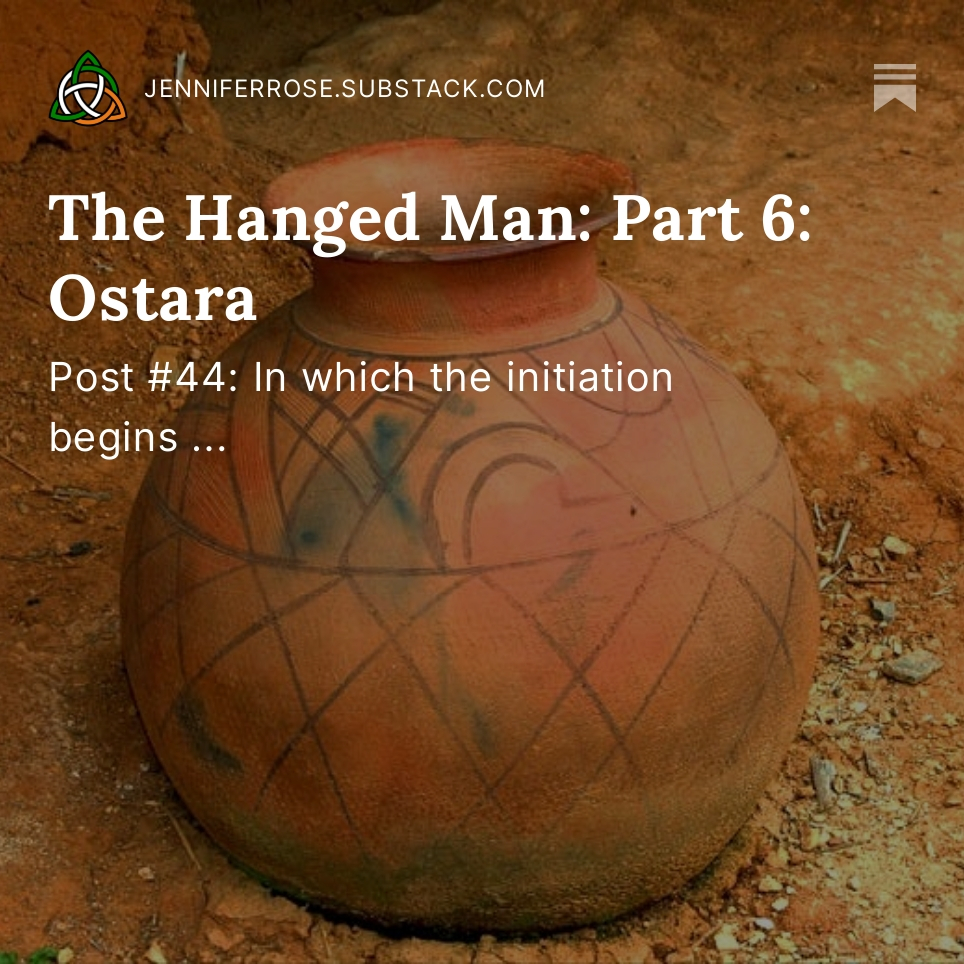
by Jenny Rose | Oct 15, 2022 | Emotional Intelligence, Fear, Feelings
One of my favorite filters through which to make choices is the question: Who benefits if I do this? Who benefits if I don’t do this?
It’s a deceptively simple question on the surface. Most of the choices we make in an hour, a day, are unconscious. We don’t take the time to think about them. We go with our instinct or impulse, we take the path of least resistance, we default to our familiar routine, we choose the most comfortable thing. Pausing to think our choices through slows us down and makes us uncomfortable.

Photo by Jonathan Simcoe on Unsplash
Unconsciousness is so much easier!
Last week I wrote about making choices, paths and no-paths, trying to navigate my life journey according to what works best for me, makes me happiest, and creates a life true to my particular values rather than doing what everyone else seems to be doing and following the most trampled trails. You know a lot of trash gets left beside the most heavily used roads, right?
I make many choices out of fear. I suspect we all do, but I won’t presume to speak for anyone but myself. In fact, I’ve posted about fear-driven choices before on this blog, years ago. Interesting, how we can spiral around and around in life, going a little deeper with each iteration.
Let’s take, for an example of a fearful choice, our own personal economic situation, whatever it is. If we are afraid to keep our accounts balanced, budget, open our bills, call a plumber, or commit to some kind of savings account, who benefits? Seriously. It’s a real question. Who benefits when we avoid dealing with our financial situation?
Any lender or business entity who charges interest or late fees benefits. Our bank benefits in overdraft or returned payment charges. Capitalism benefits if we don’t manage our spending habits and can’t resist advertising. Nameless, faceless institutions and corporations benefit from our fear. It’s in their best interests to complicate, obfuscate, create pitfalls and loopholes, offer “deals” and “sales.”
Who benefits when we put off dealing with a frightening physical sign or symptom, or facing an addiction? Both situations have the potential to get much worse, more frightening, more deadly, more expensive. So who benefits when we choose to deny, avoid, ignore what’s happening?
Who benefits when we sabotage ourselves, when we don’t choose to live according to the highest expression of who we are? Who benefits when we silence ourselves or allow others to silence us? Who benefits when we refuse risk, vulnerability, passionate creativity, joy?
I have never made a fear-based choice that didn’t eventually come back around and bite me in the ass. Most of us know the feeling of “what was I thinking?” Making the easiest or most seductive choice in the moment can mean years of cleaning up consequences and eventually having to revisit the original choice point and try again, hopefully with more wisdom.

Photo by Nicole Mason on Unsplash
And if we do circle back around, fear is still there. What if I get it wrong again? What if I fail? What if I can’t do this one thing I want to do more than anything else? What if the other kids laugh at me? What if I miss out on what everyone else is doing? What if this is my last chance?
“What if …” is nearly always the voice of fear, and it frequently stops me in my tracks. I can think of ten ways every choice might be the wrong one. All my demons throw a party and I’m stuck, locked in the bathroom without a friend or a way home while listening to them smash up the furniture..
Why do I make choices that benefit my fear? According to Oxford Online Dictionary, fear is a feeling arising from the belief that someone or something is dangerous, likely to cause pain, or a threat.
A feeling arising from a belief. Contrary to the increasing fanaticism and extremism infecting our culture, a belief is not necessarily true. We can and do change our beliefs.
Belief is a choice.
As for the feeling of fear, we are psychobiologically wired to feel it because it’s a survival mechanism. Our ancestors felt it and effectively responded to it; if they hadn’t, we wouldn’t be here.
Feeling fear is not the tricky part. What we choose to do with the feeling is. Do we use it as the good tool it is, or do we let it stop us, take away our power, keep us imprisoned?
More than that, do we feed it? Do we choose to benefit it?
If we allow our fear to take over our lives, as opposed to harnessing it to keep ourselves whole and healthy, who benefits?
No one and nothing but our fear.
Do we want to benefit a feeling based on a belief?
When I look at the world around me, that seems like a dark, well-trodden path with a lot of trash left beside it. I don’t see that particular path leading to any true connection, opportunity, or healing.
It’s not what I want. It’s not what I choose to do.
There’s enough fear in the world without me adding to it or enabling it, even in my small sphere.
Fear is for taking immediate, life-saving action. Or for weighing the pros and cons of a risky activity or choice. Or for directing our attention to a potential threat, a real threat, like the stranger peering in our window, not a belief.
We can benefit from our appropriate response to fear. Let’s not allow fear, or anyone manufacturing it, to benefit from us.
To read my fiction, serially published free every week, go here. 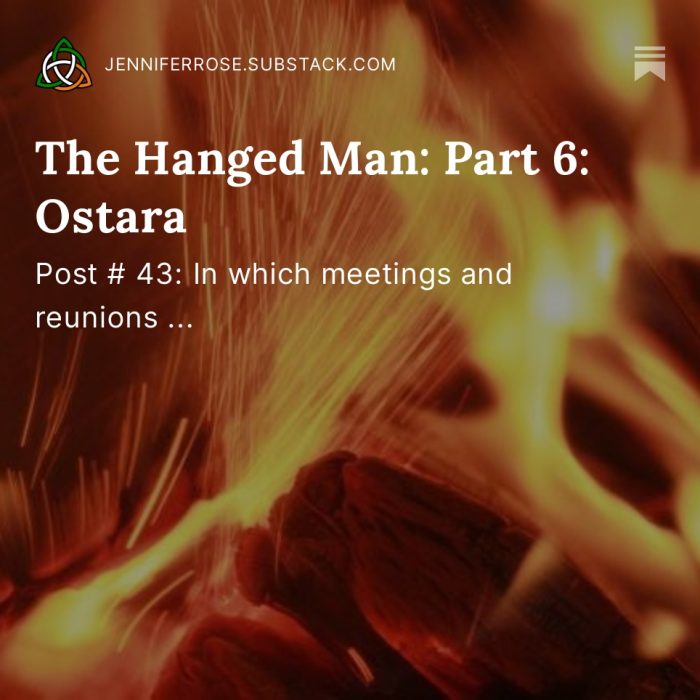
.
by Jenny Rose | Oct 8, 2022 | A Flourishing Woman, The Journey
Now is the path
of leaving the path.
And we hear our own voice
demanding of ourselves
a faith in no-path,
when there is no faith at all.
–David Whyte, from “Millennium”
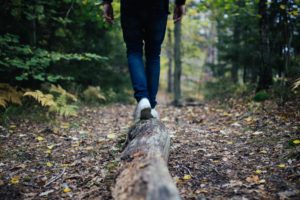
Photo by Jon Flobrant on Unsplash
I sit in my favorite grey-green overstuffed chaise, a pillow at my back, a cat curled in a cat bed behind me on the back of the chair, my laptop on my lap with a slim volume of poetry by David Whyte titled Fire in the Earth next to my leg. A bookmark indicates the above passage. It’s a chilly, grey day. As I sit here the furnace hums and stops, hums and stops, keeping the temperature around 60 degrees. This house we bought in May has a brand-new propane hot water furnace, supposedly the most economical and efficient available. This week is the first time we’ve used it. What will propane cost this winter? Will electrical costs spike as much as predicted? Will it be a cold winter or a mild one?
Always, this question in my mind: “Will I be able to manage economically?”
Enlarging my own personal bubble, I ran errands this morning. A haircut from a friend, during which we talked about the coming winter, how costly it might be, how cold it might be, how effective foam and cloth barriers like rags and old blankets might be in chinks and cracks around doors and windows. How can we hold in the heat, keep out the icy fingers of cold reaching for our paychecks?
I went to the town dump with the recycling, plastic and cans. Does all this material really go for recycling, or is it quietly disposed of in earth or ocean somewhere out of sight? I try to have faith that is really is recycled. Eggs are cheaper when I buy 18 in a carton, but the carton is plastic. But the plastic is recyclable. Maybe. If they actually do it.
This is the kind of thing that preoccupies my mind. A lot.
The furnace clicks on again. How much would I save if I turned it down just 2 degrees?
After the dump, I went to the store. I bought a couple extra jars of salsa, a couple extra pounds of butter. I’ve read about the climate-change decimated tomato crop this year and to expect shortages. Ditto butter. I bought a turkey on sale. It’s early, but I’ve read turkeys will also be in short supply. Every time I go to the store, I’ll buy a tomato product for my pantry, a pound of butter for the freezer.
Enlarging my small city bubble, maybe the projected shortages aren’t real. Maybe it’s all hype, designed to keep people spending as recession fears rise and prices climb. Maybe we can’t believe anything we read or hear from anyone. It’s like standing on the beach in bare feet, feeling the waves pull the sand away from beneath my soles, the sand of common sense, the sand of objective reality, the comforting, warm sand of sanity and critical thinking. Maybe the tide is too powerful, the waves too forceful for most people to withstand. Maybe, by the end, we will really believe in … nothing. Our individuality will be erased. Art, science, and thought will be exterminated. Our lovely sexuality will be neutralized and sterilized. Our magnificent bodies will be surgically altered according to our whims or the dictates of the totalitarians in charge and, if possible, amputated altogether from our increasingly narcissistic and developmentally arrested minds.
From the bubble of my chair in this moment of solitude with my fingers on the keyboard to the world. It’s a grim journey.
I feel increasing pressure to bring in more money. More hours are not possible right now at my job. Another job? Two other jobs? I’ve sold everything I can. I budget every penny. How much of my anxiety is based in real conditions and how much is my longstanding fear of scarcity and tendency to catastrophize? Is it not a job I need, but to GET A GRIP?
I can’t tell. Ask me when heating season is over.
Of course I could get a side job. It’s what a normal person would do. Need more money? Find more work. But is that the right thing for me to do? (I do still claim the right to think for myself.) Would the extra money be worth the time, the energy, the fatigue? I don’t want to live to work and earn. I’ve never wanted that. I’m nearly 59 years old. If I don’t take care of my excellent health, I may not get it back. Is an extra couple of hundred dollars a month worth the strain?

Photo by Angelina Litvin on Unsplash
I’d love to earn my living writing, but I believe it’s a less and less realistic dream. Traditional publishing is dying. Soaring costs and shortages, not the least of which is paper, are forcing change. Very few writers live by their writing alone. Very few. Many do earn some income from it, however.
I love books. I also love trees. If I must choose between a book in my hands and a tree, I’ll read on a digital device for the sake of the tree. Even now I never buy a new book, only used. I write – and people read what I write – on two digital platforms, this WordPress blog and Substack. Should I be monetizing those rather than searching for another job?
I’ve been having that internal conversation for years.
Would I rather avoid asking for donations or putting up a paywall and clean houses or something like that? Anyone can clean. No one but me can write what I write.
I recently picked up a couple of used books of David Whyte’s poetry. The first poem in the first book I opened contained the above excerpt. I was sitting outside in the weakening sun when I read it a couple of days ago. I put the book down and cried.
Oh, Mr. Robert Frost and his road not taken. The well-traveled roads. The less well-traveled roads. The once travelled but now overgrown roads. The paths we tread, following others, and directed by others. The faint game trails that peter out in the wilderness. The well-paved roads and paths that lead to Hell. And now Whyte asks if it’s time to leave the path altogether. Not only that, but to have faith when I have none. Faith in the no-path.
And aren’t we there, at the no-path? Civilizations have collapsed before, but not as the planet was undergoing its own collapse. Well, maybe that’s not right. Maybe in eons past it’s all happened before – relatively abrupt climate change, enormous die-off, cataclysmic geological and oceanic reshaping, and reemergence into a new normal, healthy, planetary system.
If there were paths humans could tread through all that, they’ve been lost.
But let’s make the bubble smaller again. I can’t choose your path, or anyone else’s. Is the right path for me the no-path? The money path is clear. Work more, spend less, have more money. We all know it. Most of us have walked it. It’s well-signed and well-traveled. There’s an equally well-signed and well-traveled path into theft, fraud, extortion, etc., but none of those are options for me, so let’s not complicate matters.
What’s the no-path? Oh, that would be the writing. Always. Whatever our creative work is, it takes us on to a no-path, because creativity is unique. We’re always breaking trail, one way or another. We may follow, for a time, the paths of others, or intersect their trails, but we’ll make our own unique track, worn by our footsteps as we go along, unrolling in front of our feet, existing only because we turned off the main road into a no-path … and made a path.
Faith in a no-path when there is no faith at all. What a strange, dream-like, impressionistic phrase, balancing on the edge of holy foolishness and divine wisdom. It would take a poet of Whyte’s caliber to – well, to take that path.
Right now I’m pausing, considering my options, thinking, feeling, reading and writing my way forward. I don’t have a map for these times. Does anyone? Perhaps faith isn’t necessary, just determination and choosing the next step.
Wherever we go
we can only take a step from here.
–David Whyte, from “Millennium”
It’s good to be reminded of the no-path. The six-lane highway we’ve been following has led to climate change, increasing political and social tensions, and worldwide social and economic instability. Who knows where a no-path might take me; it could hardly be much worse. At least it would be my own path, chosen by me. My feet would define it, my choices shape it. My sweat. My challenges. My journey. No guarantees, but no lies, either. Lonely, perhaps, but I’m no fan of doing what everyone else does, just for the sake of it.

Photo by NASA on Unsplash
Or maybe it’s not a question of travel at all, at least not all the time. Maybe it’s a question of standing still, like a mountain, like a tree. Standing still is an art we’re losing as a species. Maybe there’s nowhere to go and nothing to do; everything is just as it should be, no matter how uncomfortable or fearful. Maybe I have enough.
Maybe I am enough.
And standing still,
saying I, and the small vision I have
-is enough, becomes the hardest path of all.
–David Whyte, from “Millennium”
To read my fiction, serially published free every week, go here:
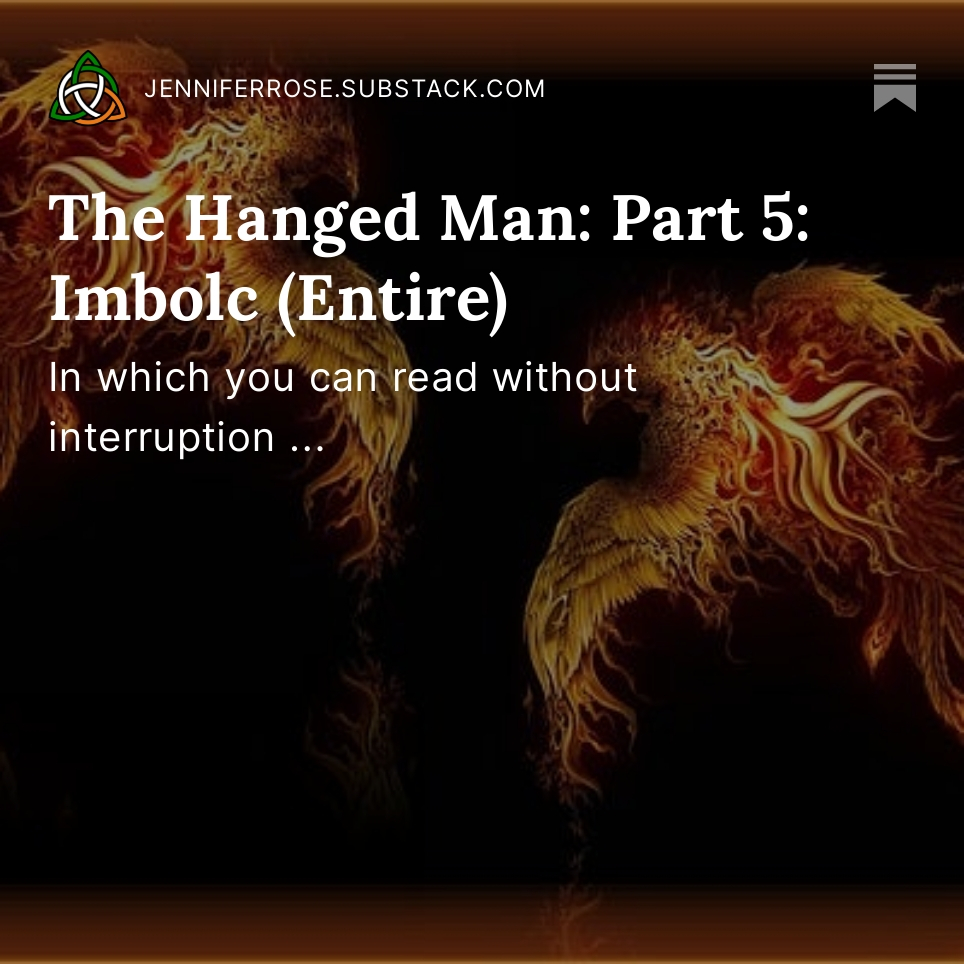
by Jenny Rose | Oct 1, 2022 | Connection & Community, Emotional Intelligence
What happens when we disagree?
Not if we disagree, but when. Because we will always disagree eventually. Always.

Photo by roya ann miller on Unsplash
Is that bad?
It depends who you ask!
Disagreement, or lack of consensus, is going to happen whenever two or more of us are interacting. Why, then, has it become so risky, this perfectly normal opportunity to show our work or learn another point of view? Why are we so insecure we can’t tolerate the slightest disagreement? Are our egos so fragile we can’t stand to be wrong or rethink a position? Does our fear of moral condemnation outweigh our ability to consider ideas and information (facts) clearly and critically and speak honestly about our conclusions?
When did differing opinions become a matter of hate and violence, and speaking our truth start leading to such brutal consequences?
Do we no longer understand how to agree to disagree?
Will authoritarianism ever lead to true agreement, or is the best we can hope for a sullen silence and mandated obedience?
(Don’t forget the French revolution.)
Certainly, it appears more and more people value power over truth, rigidity over resilience, and mindless agreement over genuine collaboration and teamwork.
If we must be in agreement all the time, there’s no hope of true cooperation and we each remain locked in our own narrow impoverished bubble, interacting only with those whose bubbles look exactly like ours. Except I don’t know of anyone who has exactly the same bubble as another. But then we’re experts at constructing believable facades.
Insisting on 100% agreement all the time guarantees cultural collapse. We can’t do it. We’re not made that way. It’s a social dead end for humanity. We cannot thrive or even survive without a healthy complex social system among our own kind as well as with countless other forms of life.
The friction of disagreement, of difference, is essential. It keeps us flexible and demands we exercise our learning and listening skills as well as use our imagination and empathy. Disagreement is a sign of respect and caring, both for ourselves and our point of view and experience, and for others. If we care enough to disagree openly and peacefully, we’re signaling our willingness to make an authentic commitment and contribution. We’re not sitting back accepting brainwashing passively, but actively participating and engaged, examining, exploring, and asking questions about whatever is in our attention.
At least some of us are.
Others demand an environment of complete agreement with no questions asked. Heavy social penalties occur if someone steps out of line. There is no negotiation, no cooperation, no discussion, no new information or showing of work. You will agree and obey. Or else.

Photo by James Pond on Unsplash
Fortunately, we humans have a wide rebellious streak, some more than others. Certain people are never going to sit down and shut up. Certain people do not worship the status quo, especially if it doesn’t serve the majority. These folks disagree, and they say so. They provide information (facts) to back up their point of view. They ask inconvenient and uncomfortable questions. They shine the clear light of critical thinking on issues and ideology.
They don’t drink the Kool-Aid.
Disagreement does not need to be a call to arms. It’s not hate. It’s not disrespect or intolerance. It’s not prejudice or bigotry. It doesn’t mean we have to cut perfectly healthy relationships out of our lives. Disagreement is a chance for connection and an expanded empathy. It’s an opportunity to learn. Disagreement is a sign of diversity, and a diverse system is a healthy one.
A system in which disagreement is forbidden cannot thrive, adapt, and grow. It’s brittle and stunted, just like the scared, shriveled human beings controlling it.
Want peace? Want tolerance, justice, and respect? Learn, demonstrate, teach, and support the kind and gentle art of disagreement.
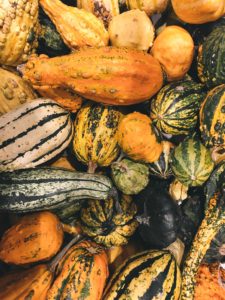
Photo by Brigitte Tohm on Unsplash
by Jenny Rose | Sep 24, 2022 | A Flourishing Woman, The Journey
As I’ve thought about this post, I realize the theme of being lost and found is a thread running through my life and my writing. Years ago, when I was first introduced to Clarissa Pinkola Estes and devouring everything I could find by her, she used a phrase I’ve never forgotten: everything lost is found again.
Everything lost is found again.
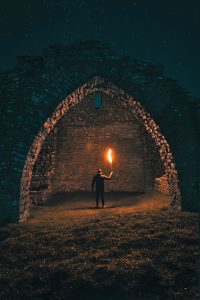
The possibility of that truth gave me deep comfort, something I badly needed in those days.
Maybe we don’t find all the things we lose in our lifetimes, and maybe not in our deathtimes. But maybe someone else finds what we lost. Or maybe what we lost comes back to us looking so different we don’t recognize it. Or maybe what we lost is not truly lost at all. We carelessly leave things behind, or we amputate them, or we deny they were ever there in the first place. We fear we’ve lost them. We try to lose them. But maybe they never really leave us, they just hide somewhere in the attic of our minds until we need them. We ascend the stairs, enter the musk and debris of years, all the broken, aging, outdated and rejected parts of our lives and ourselves mouldering together in cobwebs and dust.
I like to imagine that.
I’ve posted before about being lost and found. I went back and read it as I worked on this post, so as not to be repetitive. That post was a seasonal meditation on the nature of change. I didn’t explore it quite from the angle of losing to find.
I came across a quote recently from Kristin Martz: “We lose ourselves in the things we love. We find ourselves there, too.” It made me smile, and think about the parts of my life so deeply absorbing I am self-forgetful as I live them. My head is empty. I am pure being, without self-consciousness or anxiety. Time does not exist. I feel a kind of boundary ecstasy, an awareness of connection to everyone and everything, an essential and lovely part of some greater whole.
Perhaps during such times we lose all the crust, the armor, the accumulation of useless and punishing junk we’ve somehow picked up or been taught, and are pared down to who we really are in our souls and spirits.
Many of us don’t want to let go of our junk, though. It’s been with us so long it forms part of our identity, part of our story, and we don’t want to let it go. Then who would we be? How would we recognize ourselves? What might change? What different or challenging things might we be required to do? We don’t take the leap into anything we might lose ourselves in, so we never fully find ourselves, either.
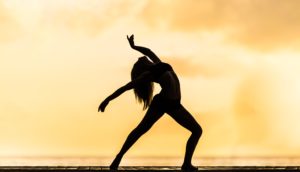
Photo by David Hofmann on Unsplash
Maybe the times in life when we truly feel we’ve lost it all are also the times we’re finding unimaginable grace and meaning.
It’s a circle, a natural life cycle, an ebb and flow of experience.
Another thing I came across somewhere years ago is the idea of an older, wiser version of ourselves, always at our shoulder supporting, advising, guiding, and cheering us on as we journey through our lives. I often make a picture of it in my mind, myself as an old (well, older!) crone, holding my hands out to a younger, struggling self the same way I hold my hands out to children I’m teaching to swim.
“You can do it. I’m right here. I won’t let go of you. You’ve got this! Now … swim!” Or jump. Or put your face in the water.
“Risk,” my elder self says, “dare, follow your heart, do what you need to do for yourself. Go ahead, write, it, dream it, imagine it, enjoy it. Be happy. Play. Rest. This is the way forward.”
And, “I believe in you.” That’s what I most long to hear.
I know it’s terribly cliched, but lately I’ve been thinking about what life means. Does it mean anything? Can anyone say what it means, or must we all make our own meaning? I lean toward the latter. I’ve wondered before what life is for, what I am for, but always in soul-dark times. This is not a dark time for me. In fact, I’m gradually coming back into the light. Now the question is a curiosity, a toy, and my answers are not concrete, not a vehicle for getting through another day, but more intuitive and less formed into language.
I keep going back to that quote: “We lose ourselves in the things we love. We find ourselves there, too.”
Losing everything to find something. There’s some kind of deep truth in that my intellect can’t quite grasp, but my spirit does.

Photo by Cristian Newman on Unsplash
I wonder, with an inward smile, if that’s not my answer for the meaning of life. Finding myself, however that happens. Paring away all the scar tissue and junk, losing and losing and losing the people and places I thought were part of my identity, along with objects, money, youth, innocence, and countless other small, ordinary losses we all experience until the best, most extraordinary me is revealed. Wouldn’t it be ironic if the meaning of life is nothing more than to immerse ourselves in it, cherish our physical experience and pleasures, give ourselves to those activities in which we lose ourselves …
… and find ourselves?
No philosophy. No agonized handwringing or intellectual labyrinths. Just body, soul, joy, and loss. And discovery on the other side of loss.
Maybe the meaning of life is simply to live.
















